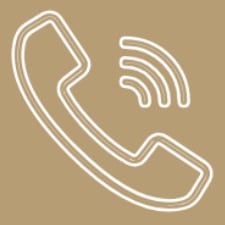Quick Outbreak Details:
Outbreak Dates (First to Most Recent Cases):
May 27 – August 1, 2023
Confirmed Cases: 10 (9 in Passaic County, 1 in Bergen County)
Deaths: Not publicly reported
Exposure Source: Under investigation by NJDOH
In summer 2023, the New Jersey Department of Health (NJDOH) began investigating a cluster of Legionnaires’ disease cases affecting residents in Passaic County and Bergen County. Officials urge individuals with pneumonia-like symptoms who recently visited the area to seek medical attention.
You May Have a Case. We’re Here to Help.
Free Consultation
NJDOH Investigates Legionnaires’ Disease Cluster in North Jersey
The New Jersey Department of Health (NJDOH) is investigating a cluster of Legionnaires’ disease cases in Passaic and Bergen Counties. As of August 4, 2023, officials confirmed nine cases in Passaic County and one in Bergen County. All reported cases occurred between May 27 and August 1.
The outbreak has prompted public health officials to alert residents, healthcare providers, and local health departments. Although the source of exposure remains unknown, NJDOH is working with local agencies to identify and address any environmental risks.
This region experienced a similar uptick in cases last winter, though that investigation did not determine a definitive cause.
What Is Legionnaires’ Disease?
Legionnaires’ disease is a type of severe pneumonia caused by breathing in water droplets containing Legionella bacteria. These droplets may come from cooling towers, hot tubs, decorative fountains, or large plumbing systems. The illness is not contagious between people.
Symptoms often resemble flu or COVID-19, including fever, chills, cough, shortness of breath, muscle aches, and chest pain. It can take up to two weeks after exposure for symptoms to appear. Early diagnosis and treatment with antibiotics are key to recovery.
While the risk to the general population is low, people over 50, smokers, and those with weakened immune systems or chronic lung conditions are more likely to develop the disease if exposed.
Public Health Response
In late July, NJDOH notified local health departments and medical providers in the area to be on alert for additional cases. Health officials are continuing their investigation into possible sources of contamination and encouraging medical testing for anyone showing pneumonia-like symptoms after being in the affected counties.
Past Legionella outbreaks in other regions have been linked to poorly maintained water systems in hotels, hospitals, and commercial properties, though no such link has yet been confirmed in this case.
What to Do If You’ve Been Affected
If you visited Passaic County or Bergen County recently and are now experiencing symptoms such as cough, fever, or chest pain, you should seek medical care immediately. Only a doctor can order the proper tests to diagnose Legionnaires’ disease.
Also consider whether legal action may be appropriate. Individuals diagnosed with Legionnaires’ disease after being exposed to contaminated environments may be entitled to compensation. This includes reimbursement for medical bills, lost income, and other related damages.
Even if the specific source hasn’t been identified, legal professionals can help review your exposure history, medical records, and potential liability.
Legal Help Is Available
Our legal team specializes in Legionnaires’ disease lawsuits. We work with medical experts and environmental investigators to determine where and how exposure may have occurred — even in cases where the outbreak source is still under investigation.
We understand the emotional and financial burden that a Legionnaires’ diagnosis can bring. If you or a loved one became ill after visiting Passaic or Bergen County, we encourage you to reach out for a free consultation.
Take the Next Step
If you believe you’ve been affected by the Passaic & Bergen County Legionnaires’ outbreak, don’t wait. Get medical help — then get legal guidance.
You May Have a Case. We’re Here to Help.
Free Consultation


